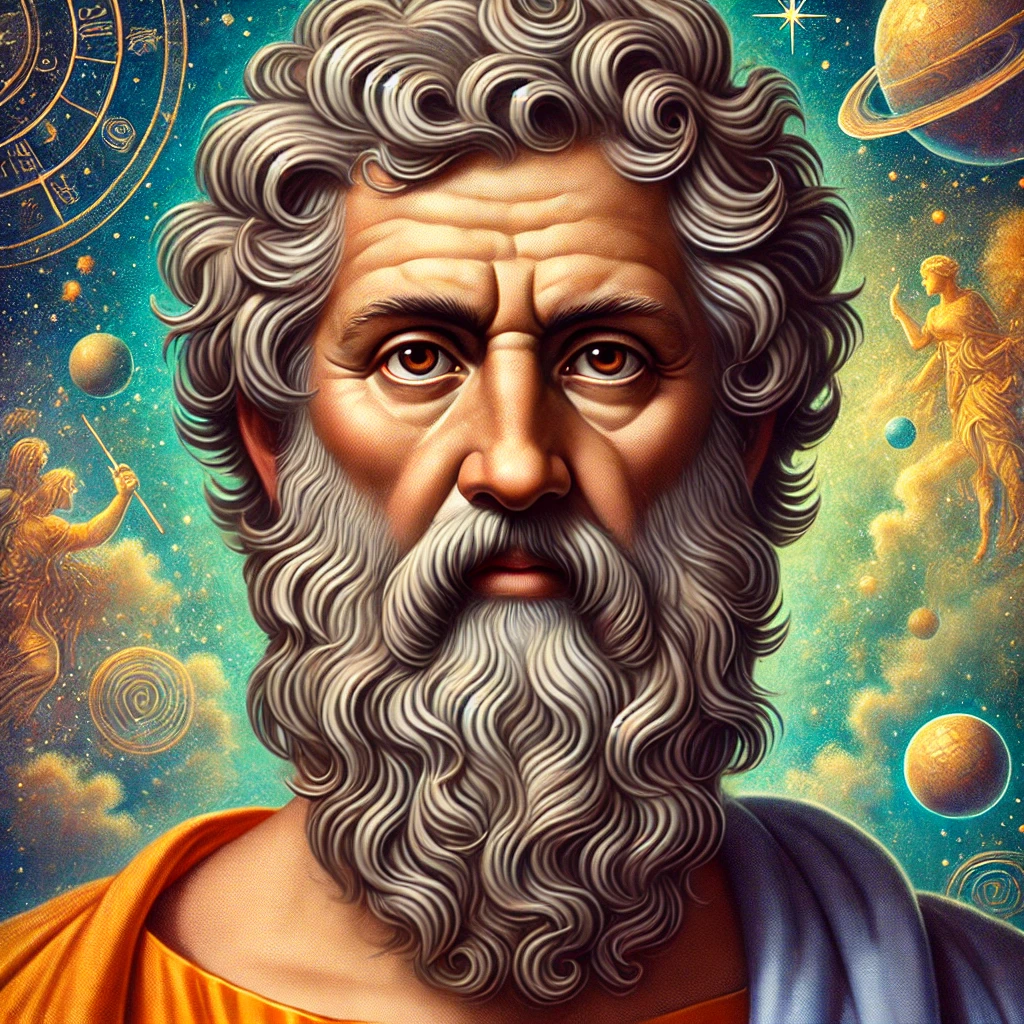Classical Greek Philosophy

Place of Origin: Ancient Greece
Century of Origin: 5th-4th Century BCE
Overview of Classical Greek Philosophy
Classical Greek Philosophy is the root of many of the ideas we have about life, the world, and how we think. It includes the teachings of well-known philosophers like Socrates, Plato, and Aristotle, who asked important questions like: 'What is the best way to live?', 'What is the nature of reality?', and 'How do we know what’s true?'. These thinkers explored both the physical world and the deeper meaning behind existence. Their ideas encourage us to not just accept things at face value, but to search for a deeper understanding of life, knowledge, and the universe.
In Classical Greek Philosophy, metaphysics is all about understanding the nature of reality. Plato believed that there’s a deeper, invisible reality behind the world we see, while Aristotle focused on understanding the world by observing nature. These philosophers asked big questions like 'What is the meaning of life?' and 'What is real?'
In Classical Greek Philosophy, learning and knowledge come from asking deep questions and thinking logically about the answers. Plato believed that knowledge is not just about the physical world but also about understanding higher, more spiritual truths—things that go beyond what we can see. Aristotle, on the other hand, thought that the best way to learn was by observing the natural world and using our senses to gather information. Both approaches inspire us to seek wisdom by going beyond the obvious and to look for deeper connections between what we experience and what we know.
Classical Greek Ethics focuses on living a virtuous and meaningful life. Socrates believed that the best life is one where we seek knowledge and try to improve ourselves. Aristotle taught that happiness comes from living in a way that is good for both ourselves and our community. To be truly happy, the Greeks thought we need to develop virtues like courage, honesty, and kindness, and work to balance our desires with the needs of others. Their teachings remind us that doing the right thing isn’t always easy, but it’s necessary for living a fulfilling life.
Greek philosophers, especially Aristotle, developed formal logic, which is a method of thinking clearly and making sure our arguments are sound. Logic helps us understand whether something makes sense or if it’s based on faulty reasoning. For example, if someone says, 'All humans need food to live. John is a human, so John needs food to live,' we can see that this is a logical statement. By using logic, we can make better decisions and figure out if the conclusions we reach are truly based on reason.
Classical Greek philosophers thought a lot about beauty and art. Plato believed that beauty was connected to truth and goodness, while Aristotle believed that art can teach us about life. For them, art wasn’t just about looking pretty—it had a deeper meaning and purpose in helping us understand ourselves and the world.
The method used by Classical Greek philosophers often involved asking lots of questions to explore big ideas. Socrates was famous for using dialogue to get people to think deeply. Plato wrote about these conversations, and Aristotle studied the world through careful observation and logical thinking.
Greek philosophers believed that humans are naturally curious and capable of reason. They thought that people should strive to live with virtue, which means developing qualities like courage, wisdom, and self-control. They saw humans as unique because of our ability to think and reflect on life.
Classical Greek philosophers had strong ideas about how societies should be run. Plato, in his book *The Republic*, described a perfect society where leaders, known as 'philosopher-kings,' are wise and always seek the common good. He believed that only the smartest and most just people should rule. Aristotle, meanwhile, studied different types of governments and believed the best ones were those that promoted fairness and justice for all. He thought that the best governments balance the needs of individuals with the needs of the community. These ideas continue to influence how we think about justice and democracy today.
Classical Greek Philosophy started in ancient Greece with thinkers like Socrates, Plato, and Aristotle. Their ideas have influenced many other philosophers throughout history and continue to shape how we think about life, truth, and the world today.
Important themes in Classical Greek Philosophy include questions about what makes life meaningful, how to live a good life, and what is real. These thinkers believed in searching for wisdom and truth, both in the physical world and in the mind.
Socrates is known for asking deep questions to help people think about life. Plato, his student, wrote about these ideas and developed his own theory of reality. Aristotle, Plato’s student, focused on observing the natural world and studying things like logic and science.




